Tongue and Lip Ties | What Are They {And How Can They Affect Breastfeeding}
Tongue and lip ties are issues that new parents are not well educated on, but can cause a host of difficulties for the breastfeeding mother and baby. Let’s dig in to the common issues ties can cause and why.
Tongue Tied?
We’ve all heard the expression of being tongue-tied when we can’t pronounce a word correctly or when we get our words jumbled up. But there’s an actual medical condition that’s called, you guessed it…a tongue tie.
Now before we go any farther. I am not a medical professional. I am not diagnosing, treating, or in any other way setting myself up as a medical professional.
This is simply a topic that is near and dear to my heart. I only wish to raise awareness about ties and some of the all too common struggles with breastfeeding that we faced due to a tongue and lip tie. Most of the information that I’ll share is information we received from a speech and feeding therapist.
Ok now that we’ve gotten that out of the way, we can move on.
What Exactly Are Tongue And Lip Ties?
A tongue tie is when the tissue that connects the tongue to the bottom of the mouth is too tight, restricting movement of the tongue and keeping it from being able to stretch, bend, and flex in the ways that it should.
A lip tie is when the tissue connecting the lip to the gum is too tight and keeps the baby from being able to correctly flange their lips on the breast.
This can effect nursing and breast-feeding in many ways for both the mother and the baby. It can prevent a baby from getting a good, deep latch and can also restrict their tongue so that it can’t make the correct motion for effective and efficient breastfeeding. Not only that but it can cause discomfort for the mother and lead to problems like frequent mastitis and low milk supply.
The picture above is before and after my baby’s tongue and lip tie revisions.
What Are The Symptoms Of A Tongue Or Lip Tie?
There are many symptoms that make sense, but there are many that you wouldn’t even relate to a tongue or lip tie. Let’s look at some of them:
For Mom:
- nipple pain and soreness past the first few days
- bleeding nipples
- frequent mastitis
- low milk supply
For Baby:
- lips don’t flange out correctly
- excessive nursing – both frequency and duration {we had both}
- a clicking sound when nursing – huge red flag!
- a slurping or sucking sound when nursing
- popping on and off during nursing
- leaking milk from corners of mouth
- excessive gas
- hiccups after most nursing sessions
- ”refuses” to take a pacifier
- slow weight gain
Not Just A Baby Problem
Left untreated it can lead to food preferences/aversions caused by the tongue not being able to control food in the mouth like it’s supposed to. {maybe not just a “picky” eater after all}
It can also lead to speech impediments later in life.{information from the speech and feeding therapist that we saw after our revision}
It can even change the structure of your face! The pediatric dentist who did our baby’s revision explained that the tongue is supposed to rest on the roof of the mouth with helps to widen the roof of the mouth and expand it. When the tongue is restricted and doesn’t widen the roof of the mouth, it causes a very narrow palate that can lead to breathing difficulties and sinus trouble and can contribute to a long narrow facial structure.
This Is Hard Stuff!
Let’s just get this out the way at the beginning, breast-feeding is hard! Now I’m sure there are some women that it comes very naturally for and it’s super easy and enjoyable. But for the majority of women it’s a huge learning curve accompanied by many trials that will make you want to quit.
There are so many doubts and fears. Is my baby getting enough milk? Am I nursing frequently enough? What if I need to be away from my baby? Can I never leave my baby? When do I get to sleep? Am I making enough milk? Do I have low milk supply? Pumping, pacifiers, and the list goes on.
Add in something like a tongue tie or a lip tie and the stress of trying to make breast-feeding work can be overwhelming for even the most dedicated mother. Trust me, I’ve been there. I know how you feel. You are not alone!!!
And another thing, trust your gut! We were assured multiple times by a lactation consultant that there was nothing wrong and that it definitely wasn’t a tongue or lip tie. If you have a feeling that something is wrong and you can’t get anyone to listen to you, keep digging until you figure it out! Trust your mommy gut!
Please note, I don’t have anything against lactation consultants. I know they help a lot of people have successful breastfeeding journeys, we simply had this experience with the one we saw.
Let’s Dig Deeper
If you’re still with me, let’s dig a little deeper on a few of these symptoms and the reasons why they’re happening.
Nipple/Breast Pain And Soreness
A baby with a tongue or lip tie has a hard time efficiently expressing milk. Because of this, they compensate in one way or another. They can also change their latch frequently trying to figure out how to make it better. You may notice that one nursing session feels fine and the next time it’s painful. Or they may be able to latch better on one breast than the other.
Nipple and breast tenderness is normal for the first few days to a weeks as they adjust and “toughen up”. However, pain that persists past the first little bit is NOT normal.
Frequent Mastitis/Low Milk Supply
Many times, a baby with ties is not able to fully empty the breast. They may wear out from having to work harder to get enough milk, causing them to tire out or fall asleep before finishing. Mastitis is a very common problem for mothers of babies who have ties. And since milk production is based mostly on supply and demand, not having the breast completely emptied sends the message that less milk can be made.
Lips Don’t Flange On Breast
When a baby breastfeeds, their lips should be flanged out on the breast and completely relaxed. The tongue is supposed to be doing all of the work! A lip tie can cause the baby’s lips to curl in which prevents them from making a good seal on the breast. This leads to some of the other symptoms including smacking and slurping sounds as well as leaking milk.
Clicking Sound When Nursing
When a baby nurses, their tongue makes a wave like motion to efficiently express milk from the breast. Being restricted by a tie can keep that wave like motion from being achieved. That clicking sound is from the baby’s tongue losing suction on the nipple. It’s kind of like when you suck your tongue to the roof of your mouth and then pull it down.
Excessive Gas
All babies have gas and a little bit of gas is normal. But what’s not normal is excessive gas that causes hours of screaming. This is NOT “normal” no matter what anyone tells you! We suffered through seven weeks of screaming sessions accompanied by gas and it broke my heart.
It’s a hard thing knowing your baby is in pain and being helpless to make them feel better. That was the reason that I kept digging and didn’t give up. The very same day that we had her revision done the painful, excessive gas stopped and we haven’t had a hours long screaming fit since!
Hiccups
This was one that surprised me, but hiccups after nearly every feeding is a typical symptom for a baby with a tongue tie. Because of the extra air they’re able to suck in while nursing, they not only can have painful gas but the hiccups too. Who knew?
Refuses Pacifiers
I know that most breastfeeding experts advise to hold off on pacifiers for the first couple of weeks. If you decide to use a pacifier and your baby “refuses” to suck it, it might not be their fault at all. My baby seemed to hate the thing and wouldn’t keep it in her mouth.
Well, come to find out, it wasn’t that she wouldn’t suck the pacifier, it was that she couldn’t. She would suck my finger all day long but as soon as you tried to give her the pacifier it would just pop right back out. After the revision, she took to the pacifier and never looked back.
Further Reading {the sciencey stuff}
Ankyloglossia and breastfeeding
Tongue Tie. Common Problem Or Old Wives Tale?
Seek Out The Right Help
If you think your baby could have a tie, please take them to see someone who specializes in infants with tongue and lip ties. If you take them to a physician who still thinks that ties are some sort of “fad”, you’re essentially wasting your time and money. That may seem harsh, but it’s the truth.
A good place to look for support and or a practitioner in your area is to look for tongue tie support groups on Facebook. Many times, they’ll have lists of reputable practitioners in your area who are knowledgable about ties and the problems they cause. Pediatric dentists and ENTs are typically who you’ll see for a revision.
You Got This Mama!
If you’re in the middle of dealing with these issues and feeling like you just can’t figure it out, hang in there mama. It does get easier! Don’t beat yourself up if you just can’t make breastfeeding work either. I let it cause me so much stress and anguish because I wanted to breastfeed so badly. Having a happy and fed baby is so much more important that the method of feeding!
If you have any questions or comments please feel free to leave them below. Or if you just need a word of encouragement, that’s what us other mamas are here for!
More Life With Baby Articles You May Be Interested In:
Low Milk Supply and How To Boost Your Milk Production Fast
How To Use A Moby | Baby Wearing And It’s Benefits
Newborn and Baby Essentials for a First Time Mom
Healthy Lactation Cookies – Dairy Free Option
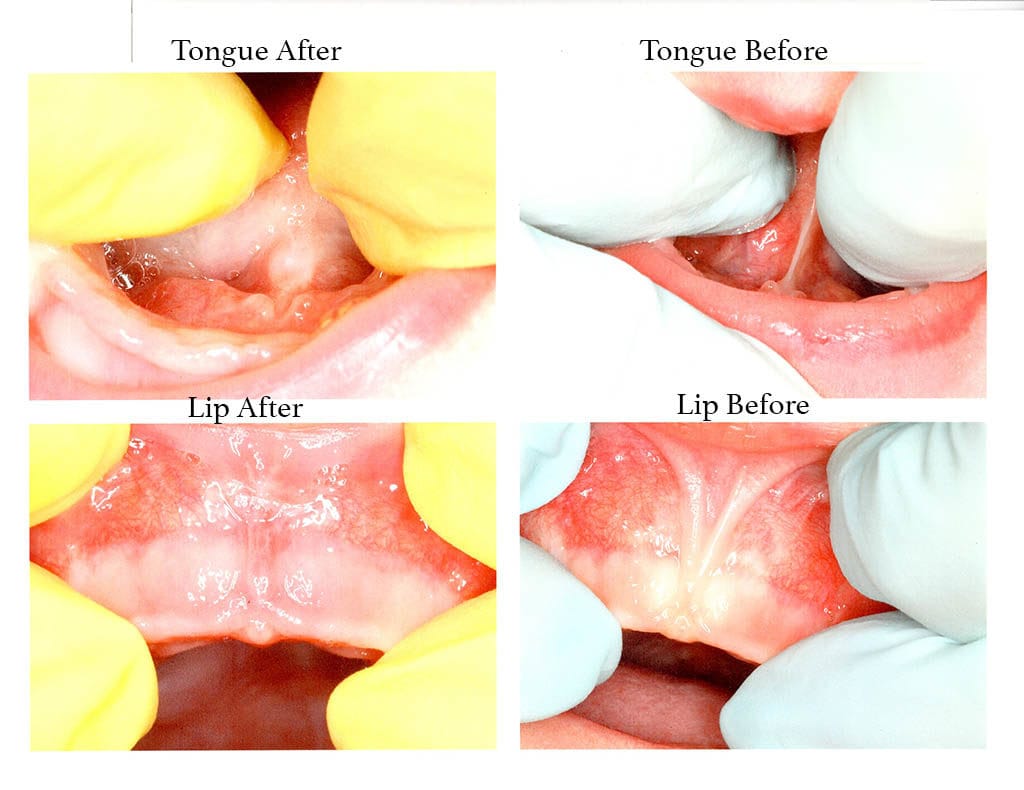
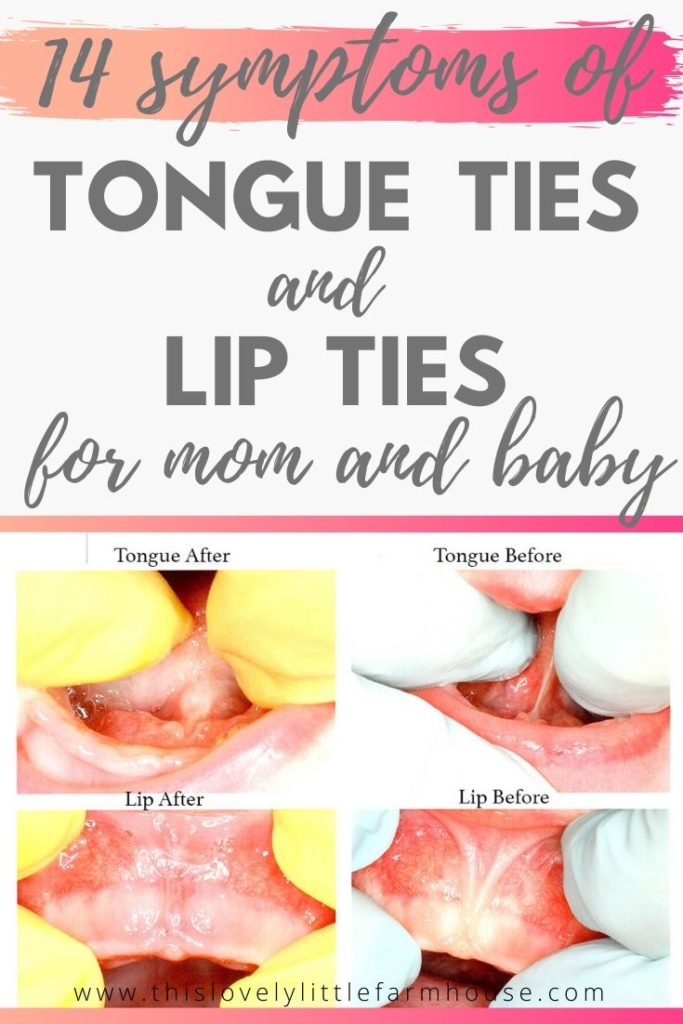
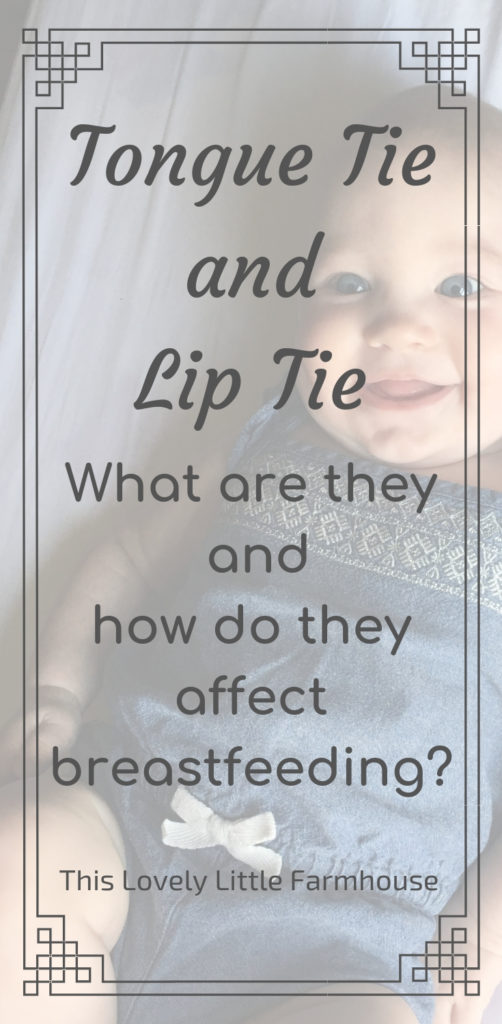
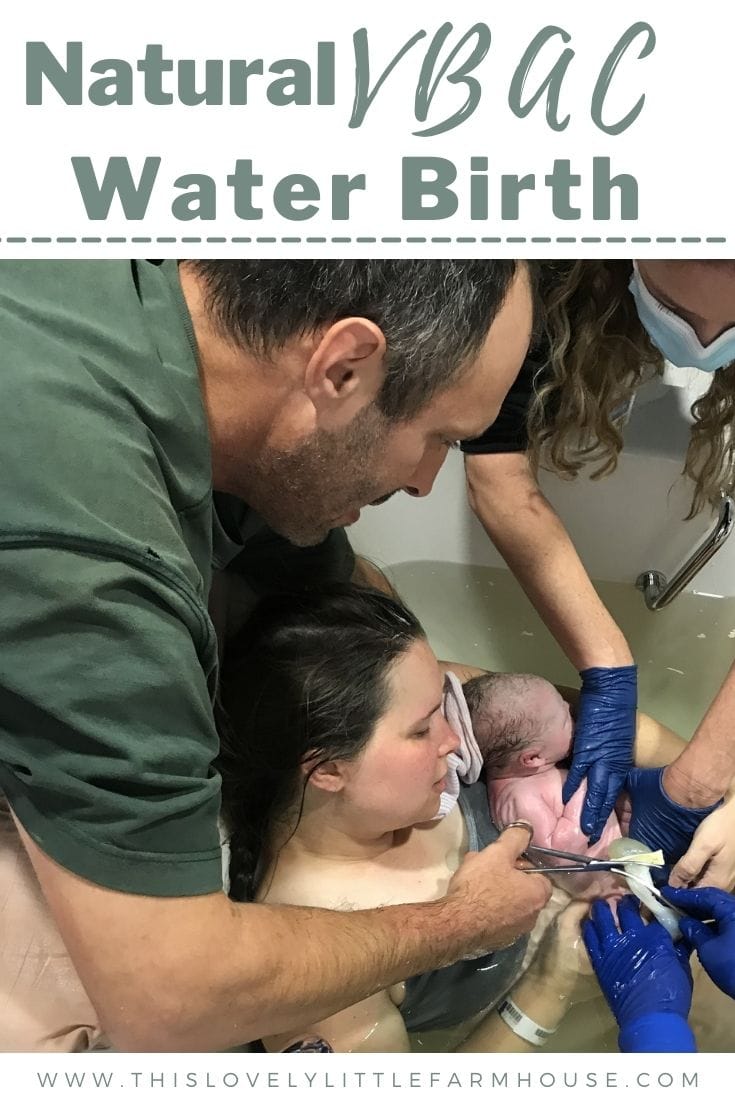
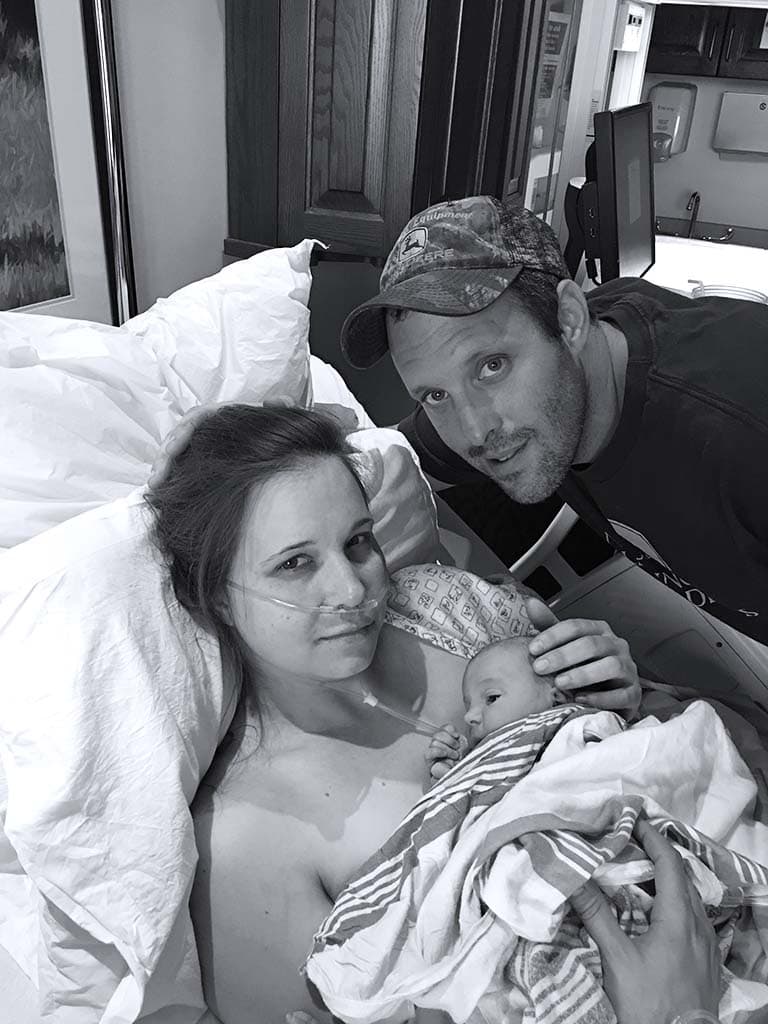


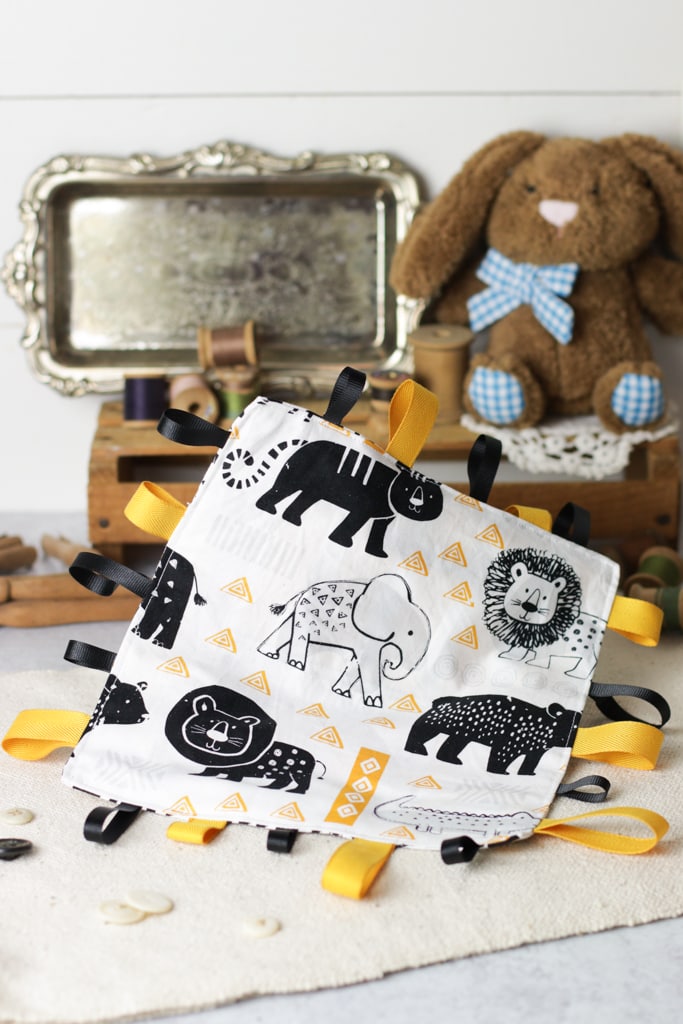
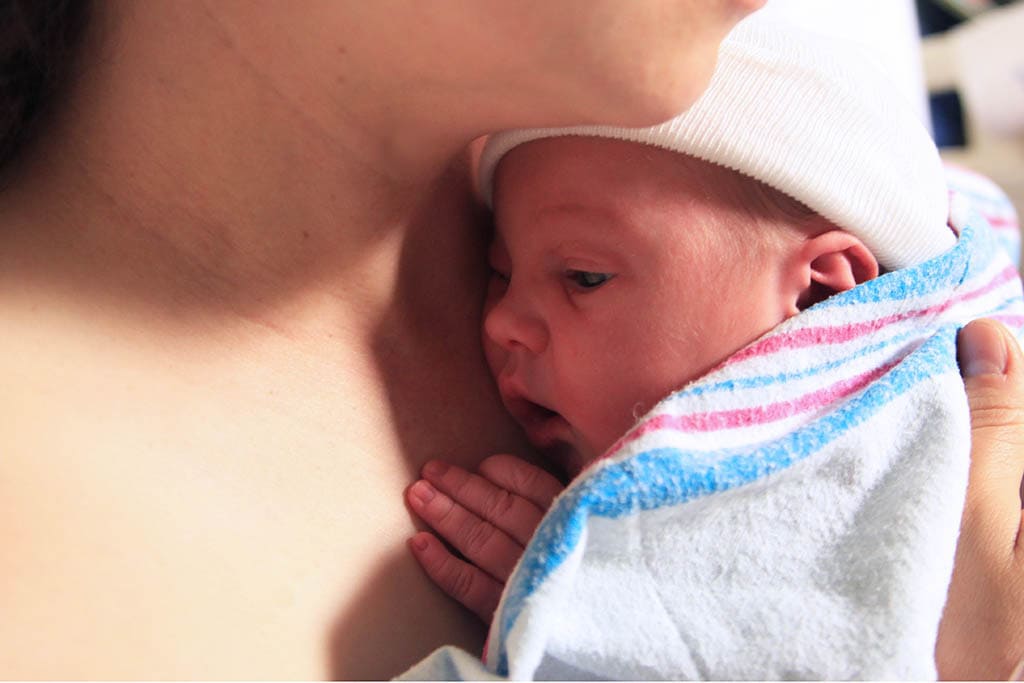
I actually have opposite experience when lactation consultant said it’s tongue ties for sure and our pediatrician said it´s not a big deal. As the nipple soreness dissapeared after 2 months or so, I just let it go. Now (9 months pospartum) the soreness and nipple bleeding returned and I am thinking to have the tongue ties checked again because I’m really struggling.
Thanks for this post, really helpful! I didnt realize can cause other problems than breastfeeding.
Oh no! I’m so sorry to hear that, Eva! Unfortunately, many pediatricians are in the category of thinking that tongue ties are a “fad” and no big deal. I commiserate with you, that stuff is so rough! I sure hope you can get some help working through it ❤️